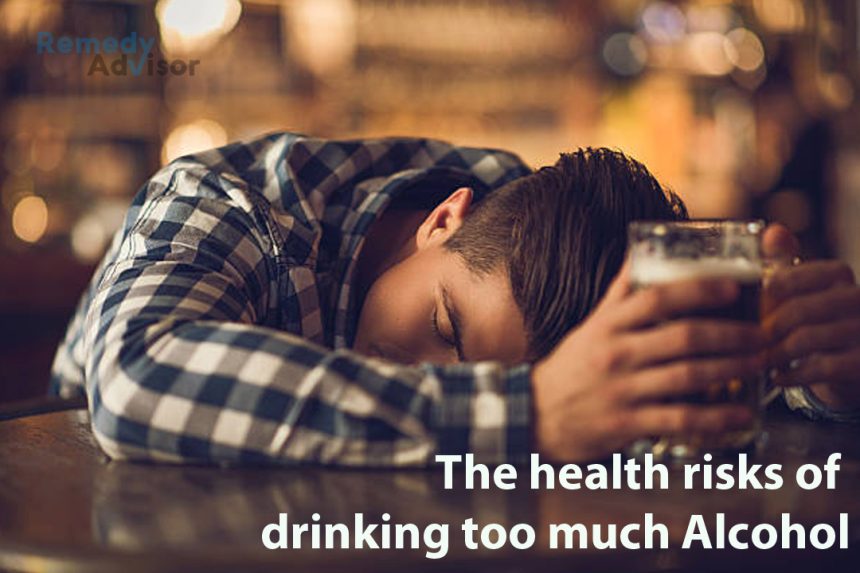The heavy toll of excessive drinking is all too obvious from car accidents to liver disease, immune system problems and depression. But the upside of alcohol is just as real. Drinking in moderation reduces the risk of developing serious illness.
Key: Knowing the level of drinking that is right for you.
Heart disease and stroke
The evidence that moderate alcohol consumption cuts heart disease risk is very strong. More than 35 studies have shown that people who have one to two drinks a day are 25% to 40% less likely than nondrinkers to have a heart attack.
Moderate drinking seems to protect the heart by boosting blood levels of HDL (good) cholesterol and by reducing concentrations of fibrinogen. That’s a natural compound involved in blood clotting.
Alcohol’s effect on the risk of stroke is more complex. Ischemic strokes (the most common kind) are caused by blood clots in the brain. One to two drinks a day protect against ischemic stroke the same way that they protect against heart attack.
Unfortunately, alcohol’s anticlotting action may raise the risk for hemorrhagic stroke. This kind of stroke is caused by bleeding in the brain. Research has shown that people who consume three or more drinks a day are more likely than nondrinkers to suffer a hemorrhagic stroke.
Alcohol can raise or lower blood pressure, depending on how much you drink. If you’re taking medication for high blood pressure, ask your doctor whether you should drink and, if so, how much.
Is red wine special?
You may have heard that red wine has special heart-protective powers. Red wine does contain antioxidants and other beneficial compounds not found in other alcoholic beverages. But an analysis of data from alcohol research around the world found that all forms of alcohol are equally effective at lowering the risk of heart disease.
To your heart, a drink is a drink. One drink equals four to six ounces of wine, 12 ounces of beer or 1.5 ounces of whiskey, gin or “hard” liquor.
Diabetes
Moderate drinkers are 30% to 40% less likely than nondrinkers to develop adult onset (Type 2) diabetes. This common condition is associated with blindness, kidney failure and heart disease.
Researchers don’t yet have an explanation for this anti-diabetes effect. One theory is that drinking with meals slows food absorption, which keeps insulin levels steady. Another is that alcohol makes cells throughout the body more sensitive to insulin.
Cancer a different story
There’s simply no question about it drinking raises the risk for cancer.
Malignancies of the mouth and throat are especially common among drinkers. But these cancers are rare, and the increase in risk is negligible if you have fewer than four drinks a day.
There is evidence that as little as two drinks per day raise the risk for colon cancer. That’s a very common malignancy.
Good news: A common B-vitamin called folic acid, or foliates, can neutralize this extra danger.
For people who consume at least the recommended daily allowance (RDA) of foliate, moderate drinking does not appear to raise colon cancer risk. The RDA for foliate is 400 micrograms (mcg) per day.
Foliate sources
Fresh vegetables, cereals, orange juice, vitamin supplements. The link between alcohol and breast cancer is stark. Studies consistently show that two to three drinks a day increase a woman’s risk for breast cancer by 30% to 40%. Whether lighter drinking has any effect is unclear.
Epidemiologists advise women to have no more than one drink a day. At this level, the benefits to the heart outweigh the increased cancer risk.
Exception: If you are at high risk for breast cancer (your mother or sister developed the disease, for example), it’s probably prudent to limit your alcohol consumption to two drinks per week. The media has reported research showing that red wine reduces the risk for cancer.
Lab studies did show that resveratrol, an antioxidant found in red wine, blocks DNA damage that leads to cancer, detoxifies carcinogens and prevents tumors from progressing. But there’s no evidence that resveratrol has any effect on humans. Not one population study has linked red wine consumption to reduced cancer rates.
Implication: Taking grape extract, eating grapes or drinking grape juice for resveratrol is unlikely to cause you any harm. But there’s no evidence it will help you.
The bottom line
There’s compelling evidence that moderate drinking up to two drinks a day for men, one a day for women is better for health than abstaining. This level of drinking reduces deaths from all causes by 15% in men and women alike. If you already drink moderately, feel reassured.
If you’re currently a nondrinker, should you start drinking? Not necessarily. You may be among the minority who cannot keep their drinking at a beneficial level. Once you exceed three drinks a day, your risk of disease and death becomes higher not lower.
Concentrated bouts of drinking are a bad idea, too. Having your entire weekly quota of drinks on the weekend won’t help your cholesterol and it might raise your risk of suffering a stroke or a lethal heart rhythm disturbance.
And a healthy heart won’t help you much if you wrap your car around a telephone pole.







